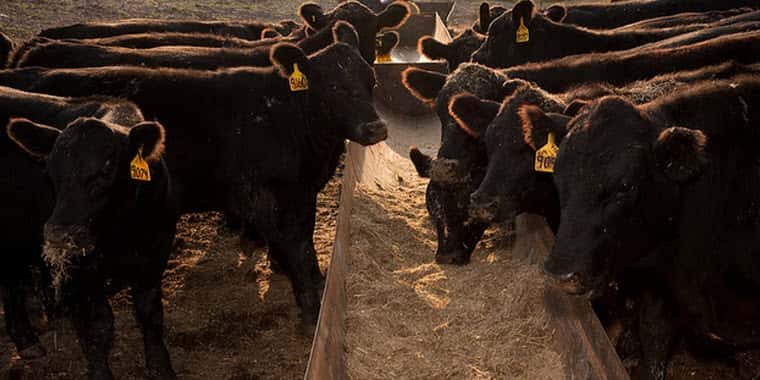701
You’ve seen it. Shifting gears and bale beds bouncing amidst the frozen piles. Dusk is setting and cattle feeding is ensuing. So why do ranchers decide to change their schedule this time of year? The answer is simple. Getting some food in those cows’ bellies in the evening is often a good insurance policy against middle-of-the night calving dilemmas.
“My family has fed at night for well over thirty years and we’ve had really good luck with it,” said Dr. Rachel Endecott in a recent interview. As the Extension Beef Cattle Specialist with Montana State University, Endecott now also has the skill set behind her to figure out why this could be the case.
Acknowledging that it hasn’t been identified as to exactly how this works physiologically, she says there are a few body functions that could factor in. First, eating may cause a hormonal shift in the animal. Second, the simple act of eating prompts a gastrointestinal process. Rumen pressures change, rising after fed at night and decreasing the following morning. According to Endecott, the frequency of rumen contractions falls a few hours before calving as does the inter-rumenal pressure in the final weeks before birth.
Endecott referred to a study out of Iowa that’s been conducted on 1,300 head of cattle. By feeding once daily at dusk, it was documented that 85{f2533179b7c7e7cbdbc11018732de14c82f3d44c9f1e829e9a046cc47141a2e6} of the cattle in the study calved between 6 a.m. and 6 p.m.
Grazing can obviously throw a wrench in this set up. If cattle do have access to grass throughout the day, Endecott says that you may not have as much success.
© Haylie Shipp 2015
Image courtesy of Hammond Photography


